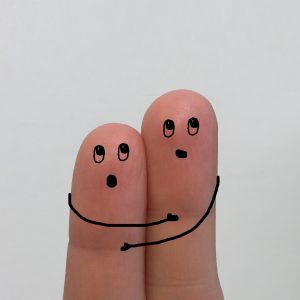Recently I had this thought in the shower, “Fear kills productivity.” I recognized a fruitful life forsakes fear and all activity motivated by it.
 Fear doesn’t add a thing to our experience. In Matthew 6 Jesus noted anxiety never lengthens life. Neither does it contribute to quality of life. Fear is never a happy place; instead it brings torment (1 John 4:18 KJV). Fear—worry, anxiety, being stressed out, whatever one wants to call it—is a thief. It steals our joy, our courage, our strength, our will to do, our peace, our hope, our rest, our health—you name it. It poisons and weakens relationships. It stops our forward progress. It’s the opposite of boldness. Consider the contrast pictured in this verse:
Fear doesn’t add a thing to our experience. In Matthew 6 Jesus noted anxiety never lengthens life. Neither does it contribute to quality of life. Fear is never a happy place; instead it brings torment (1 John 4:18 KJV). Fear—worry, anxiety, being stressed out, whatever one wants to call it—is a thief. It steals our joy, our courage, our strength, our will to do, our peace, our hope, our rest, our health—you name it. It poisons and weakens relationships. It stops our forward progress. It’s the opposite of boldness. Consider the contrast pictured in this verse:
The wicked flee when no one is pursuing, But the righteous are bold as a lion (Proverbs 28:1).
 Have you ever found yourself figuratively running or hiding only to learn later no real threat existed? This scenario could manifest in scores of ways. Maybe you’re worried about what someone thinks of you and you’re holding court in your head, when in fact their mind’s not on you at all. You might lose sleep, anxious about something over which you have no control. That doesn’t change the situation in the least; by entertaining that fear you just get to feel like a zombie the next day.
Have you ever found yourself figuratively running or hiding only to learn later no real threat existed? This scenario could manifest in scores of ways. Maybe you’re worried about what someone thinks of you and you’re holding court in your head, when in fact their mind’s not on you at all. You might lose sleep, anxious about something over which you have no control. That doesn’t change the situation in the least; by entertaining that fear you just get to feel like a zombie the next day.
Certain conversations from the movie Bridge of Spies stood out to me. An accused spy’s public defender, Jim Donovan, seems to feel his client, Rudolf Abel, who faces execution if convicted, fails to grasp the gravity of his situation. On three occasions Jim makes a statement or asks a question, soliciting the anxiety he assumes must lurk under the defendant’s peaceful exterior.
 Seeing Abel unperturbed at the majority’s desire to send him to the electric chair, a perplexed Jim comments, “You don’t seem alarmed.”
Seeing Abel unperturbed at the majority’s desire to send him to the electric chair, a perplexed Jim comments, “You don’t seem alarmed.”
In the courtroom when things look grim, he asks him, “Do you never worry?”
Near the end of the film a freed Abel crosses the bridge, now facing possible execution at the hands of his soviet bosses. Baffled by his calm demeanor, Jim remarks, “You’re not worried.”
Abel’s response to each of these invitations to court anxiety is a matter-of-fact, “Would it help?” He may not have relished death, but he was not terrified at the prospect, and he saw worry as pointless.
Observing His apparent indifference to His fate, an equally puzzled Pilate failed to intimidate Jesus by pointing out his authority to crucify Him (John 19:10). Jesus wasn’t afraid to die. In His mind, He had already laid down His life. The apostle Paul was similarly abandoned, saying, “To live is Christ, to die is gain!” (Philippians 1:21).
 The biggest fear of all is death. For the believer, death is not a threat, but the door to eternity in God’s presence! Try interrogating your fear with, “What’s the worst thing that could happen?” If you’re not afraid to die, lesser fears lose their power.
The biggest fear of all is death. For the believer, death is not a threat, but the door to eternity in God’s presence! Try interrogating your fear with, “What’s the worst thing that could happen?” If you’re not afraid to die, lesser fears lose their power.
Prayer
God, You created me for a fruitful life. I don’t want to waste another minute worrying. Thank You for helping me to reject fearful thoughts and to choose peace and courage, trusting in You. Amen!


Thanks, JB – I loved both the thoughts expressed and the finger illustrations! The hymn that often comes to mind for me if/when I start to sorry is “His Eye Is On the Sparrow”, which begins, “Let not your heart be troubled…”